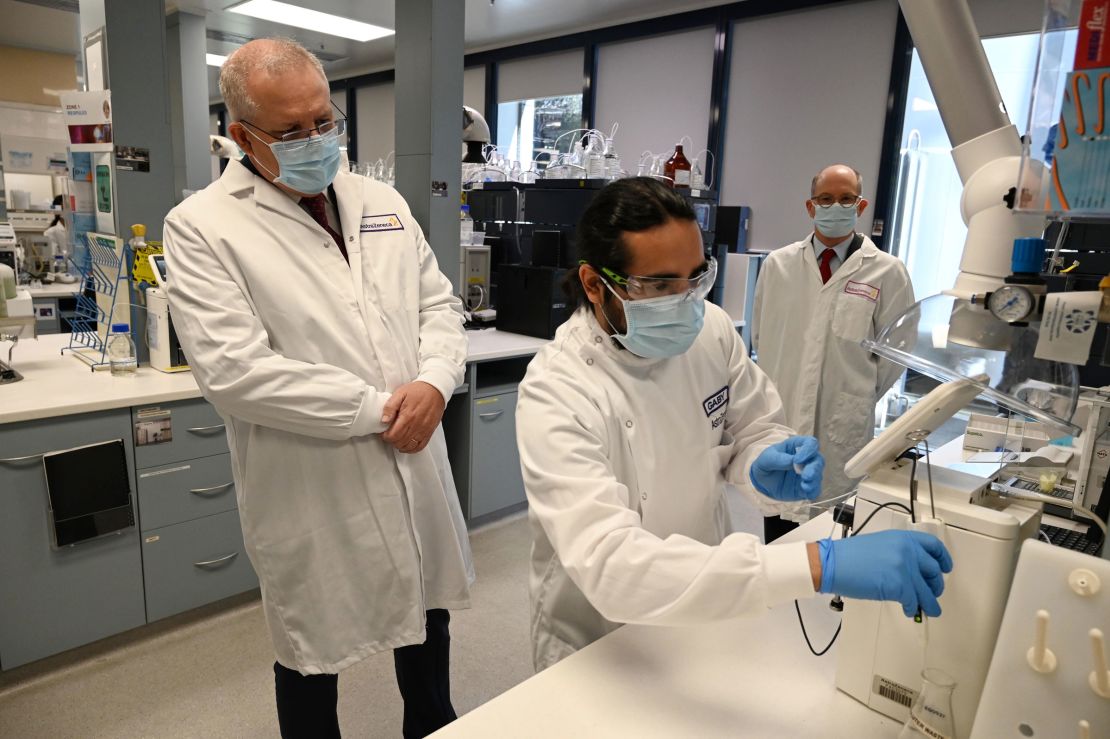With one comment, Australian Prime Minister Scott Morrison managed to turn a positive coronavirus story into a public relations disaster, and highlighted the potential next nightmare of the pandemic: a fight over vaccines.
Speaking about a plan to provide free coronavirus immunization to all Australians as soon as that is possible, Morrison said Wednesday that he would “expect it to be as mandatory as you could possibly make it,” with some exemptions on medical grounds.
His health minister, Karen Andrews, reiterated that line later, saying the government was “looking at it being a mandatory vaccine.” But by Wednesday evening, Morrison was already backtracking, telling radio station 2GB that “it is not going to be compulsory to have the vaccine … there are no compulsory vaccines in Australia.”
“No one is going to force anybody to do anything as a compulsory measure, but we certainly will encourage people to take this up,” Morrison said. “Everybody needs to understand what we are trying to achieve here.”

Morrison’s reversal came after his original comments had been seized on by anti-vaccination groups in Australia and around the world, many of which have long been warning of supposed plans to force a coronavirus jab on people.
On Instagram, Larry Cook, a leading US anti-vaxx campaigner and founder of Stop Mandatory Vaccines, wrote that “Australia is pushing hard for mandatory Covid vaccination.”
“Is anyone surprised? I sure hope not. This is, after all, a PLAN-Demic,” he added, referencing a widely discredited video that went viral on Facebook and other platforms, which included erroneous claims about vaccines.
Ben Garrison, a popular right-wing cartoonist who was invited to the White House by US President Donald Trump, only to be disinvited due to his work’s alleged anti-semitism, wrote on Twitter that Morrison’s comments should make Americans “beware” the “coming threat of Covid-19 vaccine tyranny.”
This is despite assurances earlier this week from the US’ top infectious diseases expert, Dr. Anthony Fauci, that a compulsory coronavirus vaccine remains highly unlikely. “If someone refuses the vaccine in the general public, then there’s nothing you can do about that. You cannot force someone to take a vaccine,” said Fauci on Tuesday.
While Australian Prime Minister Morrison’s comments created something of an open goal for anti-vax campaigners, the scandal does point to the wider issue of “vaccine hesitancy,” which the World Health Organization identified last year (before the coronavirus pandemic hit) as one of the top 10 threats to public health around the globe.
“Vaccination is one of the most cost-effective ways of avoiding disease – it currently prevents 2-3 million deaths a year, and a further 1.5 million could be avoided if global coverage of vaccinations improved,” the WHO states, and yet vaccine avoidance is on the uptick, leading to a resurgence of otherwise preventable diseases like measles.
According to the Lancet, anti-vaxx sentiment has been recorded in 90% of countries, and while some anti-vaxers have changed their minds as a result of the coronavirus pandemic, for others, it has only hardened their stance. Many groups have been campaigning against a potential Covid jab for months, even as scientists warn it is still potentially a year away.
“Covid has been a growth opportunity for anti-vaxxers,” the Center for Countering Digital Hate (CCDH), an NGO which works to counter misinformation online, warned in a July report. “The scale and growth of the anti-vaxx movement revealed by our research is particularly concerning given that scientists estimate that 82% of the population would need to become immune to Covid, either through getting the disease or through a vaccine, in order to safely manage outbreaks.”
Polling carried out by British market research company YouGov on behalf of the CCDH found that 44% of Americans and 37% of Brits would consider not getting a coronavirus vaccine even if it was available, a similar result to that recorded in a CNN poll in May.
Last week, Michael Caputo, an assistant secretary for the US Department of Health and Human Services, said that “we see more vaccine hesitancy with the Covid vaccine than with other vaccines. We know that. This concerns us, of course.”
It should concern everyone. Without an effective coronavirus vaccine, there currently appears to be no other viable way to return to pre-pandemic normality.
There are numerous strong arguments in favor of mandatory vaccination, but tackling coronavirus doesn’t necessarily require such a move. In the twentieth century, polio was brought under control thanks to a widespread understanding of the horrors of that disease, not because people had to be forced to take a shot.
But by using the threat or even vague suggestion of a mandate to campaign against a potential coronavirus vaccine, anti-vaxxers are actually making such an order more likely. If vaccine uptake is too low to generate herd immunity, governments may have no choice but to compel vaccination, either by preventing children from attending public schools if they are not immunized, or eventually even by mandating everyone receive the vaccine.




















